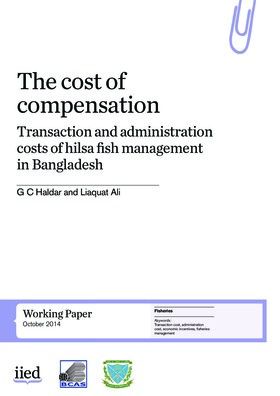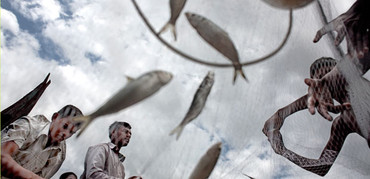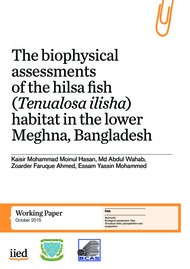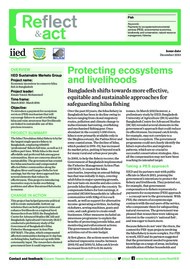The cost of compensation: Transaction and administration costs of hilsa fish management in Bangladesh

The government of Bangladesh has introduced an economic incentive mechanism to sustainably manage the country’s hilsa fishery – a sector that provides 450,000 fishers with their main livelihood and accounts for about 1 per cent of Bangladesh’s gross domestic~product (GDP). Under its hilsa management plan, fishing is banned for several months a year in a number of sanctuary areas, and during these periods affected fisher households are offered food assistance and support for alternative income generation activities. While economic incentive mechanisms of this kind have~been hailed as the most cost-effective and efficient way to manage natural resources, their efficiency depends on how much the incentives cost to implement. This paper investigates the transaction and administration costs of delivering economic incentives under the hilsa management plan in Bangladesh, in order to better understand what costs are incurred and why; and offers~some recommendations to improve the scheme.
Cite this publication
Available at https://www.iied.org/15522iied






